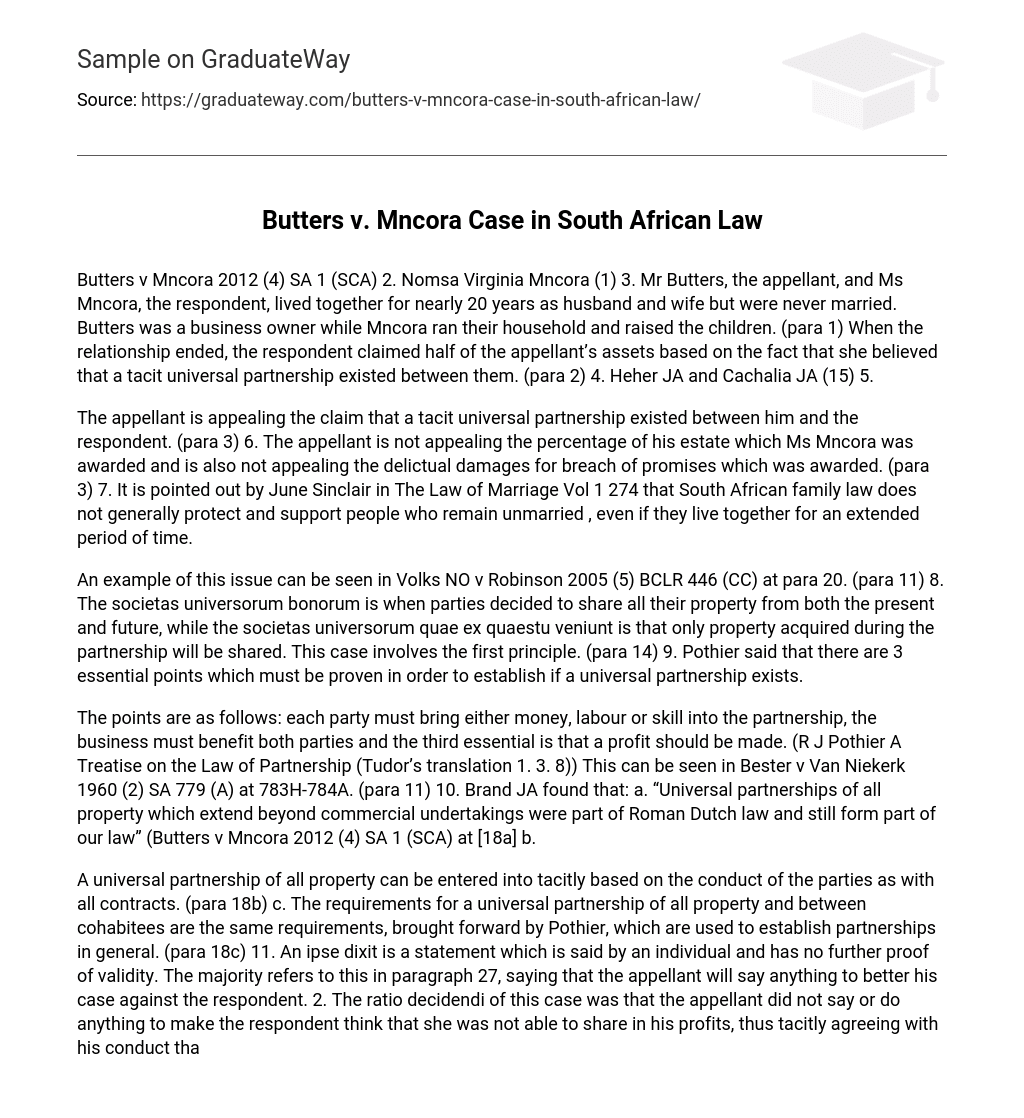Mr Butters, the appellant, and Ms Mncora, the respondent, cohabitated for nearly two decades without being officially married. During their time together, Butters managed a business while Mncora took care of the household and raised their children. Following the end of their relationship, the respondent asserted her right to fifty percent of the appellant’s assets by arguing that they had formed an implicit universal partnership.
The appellant is appealing the claim of a tacit universal partnership between him and the respondent. However, the appellant is not appealing the percentage of his estate awarded to Ms Mncora or the delictual damages for breach of promises. June Sinclair in The Law of Marriage Vol 1 274 highlights that South African family law does not typically protect and support unmarried cohabiting couples, regardless of the duration of their relationship.
The issue of property sharing between parties can be seen in the case Volks NO v Robinson 2005 (5) BCLR 446 (CC) at para 20. There are two types of property sharing: societas universorum bonorum, where all present and future property is shared, and societas universorum quae ex quaestu veniunt, where only property acquired during the partnership is shared. This case pertains to the first principle.
Pothier stated that in order to determine the existence of a universal partnership, three key factors must be demonstrated. Firstly, each party must contribute either money, labor, or skill to the partnership. Secondly, the partnership should bring benefits to both parties involved. Lastly, it is essential that a profit is made.
According to Roman Dutch law, universal partnerships of all property, which go beyond commercial undertakings, were and still are an integral part of our legal system. Such partnerships can be established implicitly through the behavior of the involved parties, just like any other type of contract.
The requirements needed to form a universal partnership between cohabitees are the same requirements used to establish partnerships in general, as proposed by Pothier. An ipse dixit is an individual’s statement that lacks further evidence of its validity. In paragraph 27, the majority mentions that the appellant will make any claim to strengthen his case against the respondent.
The key finding in this case was that the appellant’s silence and actions led the respondent to believe that she agreed to share in his profits, implying a universal partnership. The ruling also acknowledges that laws protecting cohabiting partners are not equivalent to those for married couples and that a universal partnership differs from a marriage sharing property.
The minority judges determined that the appellant had founded, operated, and achieved success in the business without assistance from the respondent. This minority reasoned that if Ms Mncora had not caught Mr Butters with another woman, Mr Butters would have likely continued supporting the respondent financially for the rest of her life.
According to the minority’s perspective, there was no evidence to refute the appellant’s claim that the parties did not share everything. However, I side with the majority’s decision because the appellant had never given any indication or behaved in a way that would lead the respondent to believe they were not in a universal partnership. Throughout their 20-year relationship, Ms Mncora had been raising Mr Butters’ children, and he had even proposed to her.





